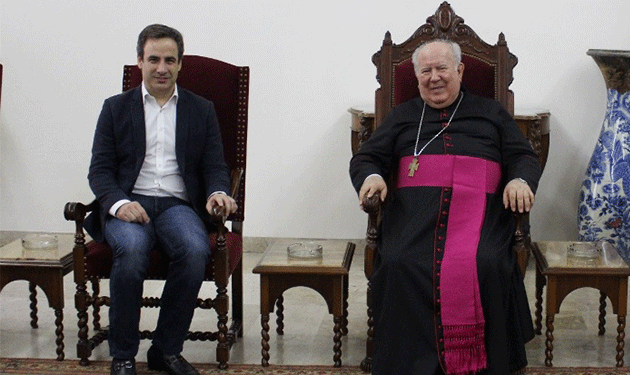President of the Independence Movement MP Michel Mouawad considered that “the economic and social situation cannot tolerate the endurance of disputes and struggles over the distribution of ministerial portfolios as was the case with previous governments,” calling on all politicians to “handle the government formation file, taking into consideration the seriousness of the situation in the country and the economic and social conditions.”
Moawad considered during his visit to the Maronite Archbishop of Beirut, Bishop Paul Matar, that “the disputes should not be a reason to hinder the government formation the soonest possible and since the status quo is the formation of a national unified government, we must take into account the current situation of President Michel Aoun and Head of the resigned government, Saad Hariri, within one criterion of blocs or parliamentary alliances; and most importantly, that this representation should signify reform in order to give Lebanese, the international community, and investors a sign that positive change is about to happen and that we are not puppets to stakes and shares, but are responsible for leading Lebanon towards necessary reforms.
And Moawad pointed out that “electing a President, forming a government, and holding parliamentary elections were not enough in the eyes of investors and the international community to improve the economic cycle,” adding that “the world is waiting for serious reforms from us for Lebanon to rise from its problems.”
And in response to the criticisms facing the Presidency and the Republic, Moawad said that “it is not in anyone’s interest to hurt the President or attempt to weaken him, especially that General Michel Aoun is the first President of the Republic stressing that “we reject this and we are in the “Strong Lebanon” bloc in support of the Presidential station, because I am sure that weakening this station, God forbid, will not achieve reform and does not achieve sovereignty and balance nor will it attract investors to Lebanon.
And he pointed out that “supporting the presidency’s position is essential in restoring balance, through national partnership, to institutions and for establishing the state as it should be.”







 العربية
العربية